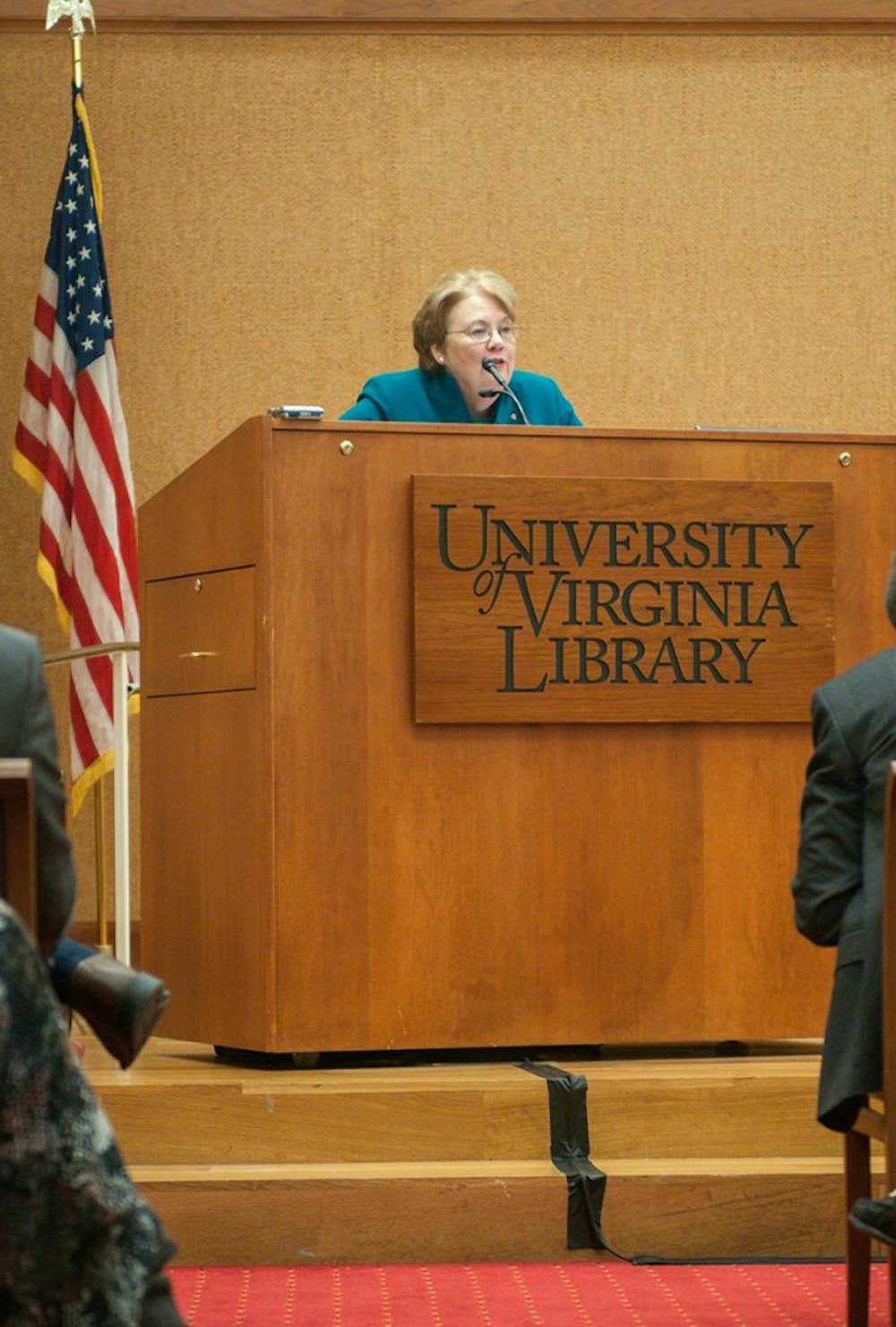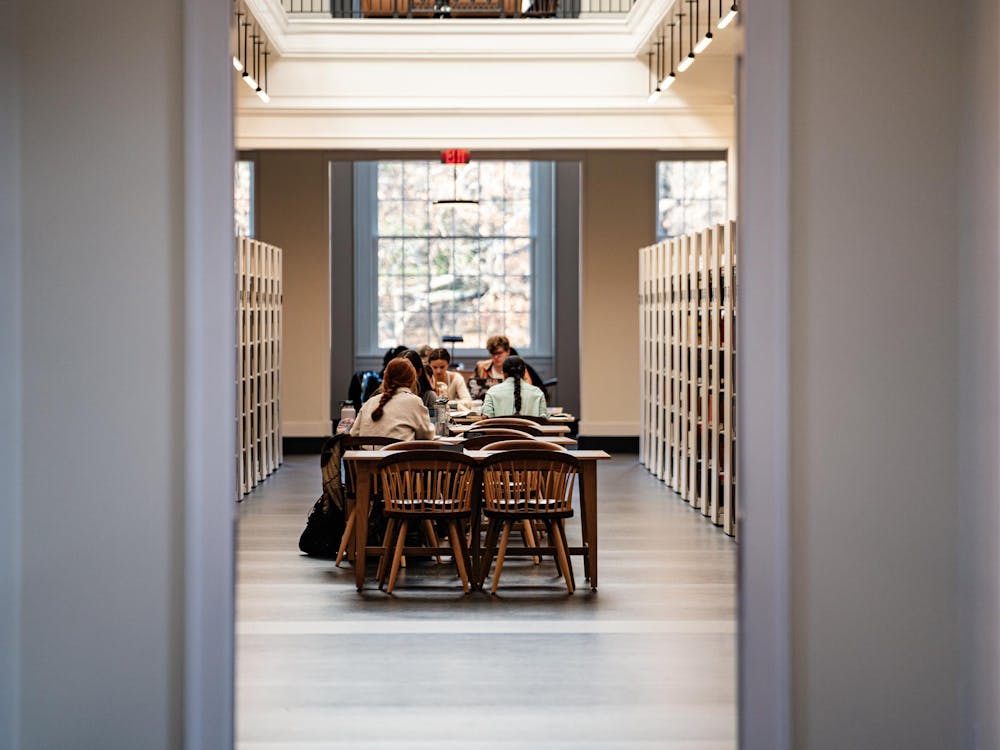University President Teresa Sullivan addressed the University community Friday with an update on recent and upcoming initiatives, and discussed the ongoing University self-examination brought on by the critiques of last semester.
Sullivan also responded to questions concerning the letter from the National Panhellenic Conference requesting University sorority chapters to refrain from participating in Boys Bid Night.
“I have not spoken with national sorority leaders, nor did they consult us about the letter that they sent,” Sullivan said. “I would encourage you to talk to our own sorority leaders because I am not certain this came without consultation.”
In response to a question on how she would respond were a sorority member at the University, Sullivan said that while she cannot advise specific student reactions, sorority members themselves likely have the best idea of how to appropriately respond.
“It was the choice of those of you in sororities to join the organization, and you must decide the extent of which you wish to abide by the policies of the organization,” she said.
Sullivan said that while discussion of the sanctions is important, students must be responsible for making the best decision according to their consciences.
“I do always think that dialogue is helpful in these situations, because there are misunderstandings, especially [in] only communicating with each other in paper and press releases,” she said. “Ultimately I trust the maturity of our students to make these good decisions.”
Overall, Sullivan sought to focus discussion around larger University initiatives, such as the Ad Hoc Group on Climate and Culture.
“At the beginning of this new year at U.Va., we are deeply engaged in a period of institutional self-examination, with the goal of assessing and improving the climate and culture at our University,” Sullivan said. “To lead this work, I assembled an Ad Hoc Group on Climate and Culture that includes administrators, faculty, staff, students, parents, alumni and members of the Board of Visitors.”
Sullivan said the Ad Hoc Group considered both the cultural roots of harmful student behavior and how to implement effective practices to limit such behavior as a University community.
“We divided the issues into three categories — prevention, response and culture — and we now have a working group of students, faculty, staff, parents, and alumni assigned to each category,” she said. “These groups will be working carefully, but briskly, [and] will deliver interim reports by March 16 and final reports by April 30.”
Sullivan announced the University’s participation in a sexual assault climate survey organized through the Association of American Universities in April. The University is one of 28 schools participating in the survey.
“The questionnaire is being designed by a team of researchers with experience in sexual violence,” Sullivan said. “The participating schools enroll more than 800,000 students, making the survey one of the largest ever on sexual assault.”
The team of researchers conducting the survey is headed by University of North Carolina professor Sandra Martin. Data from the survey will be available by July, Sullivan said, allowing the results to inform education and prevention strategies for the next academic year.
“People know that most forms of sexual violence are seriously underreported,” Sullivan said, “One of the things a climate survey does, that’s one with a large enough response rate, is it lets you estimate the incidents of sexual violence in a different way from reported cases.”
Sullivan also outlined some of the initiatives and programs emerging from the Cornerstone Plan — a strategic plan submitted in 2013 regarding the future of the University. Programs developed as a part of the Cornerstone Plan include student programs such as the Meriwether Lewis Institute for Citizen Leadership, the Total Advising Initiative and a variety of co-curricular and extracurricular international programs.
“Another strategy in the Cornerstone Plan is to create a series of pan-University research institutes to allow faculty teams to collaborate on research while generating new degree programs, minors, and certificate programs for students,” Sullivan said.
After a $3 billion campaign in 2013, Sullivan said the University is focusing on attracting private support for three key priorities: retaining and recruiting top faculty, providing outstanding students with need-based scholarships and restoring the Jeffersonian buildings around Grounds.
"Just as we summoned all of our intellectual capability to study and plan for the complex work of the Rotunda restoration, we will now summon all of the intellectual resources of our great university to make this a stronger, safer university,” Sullivan said.





